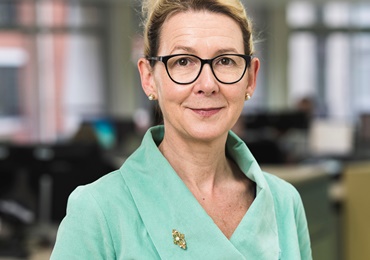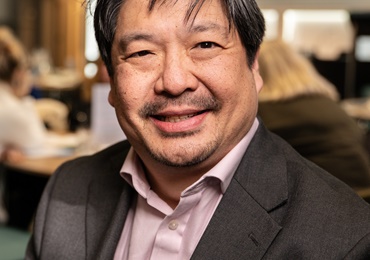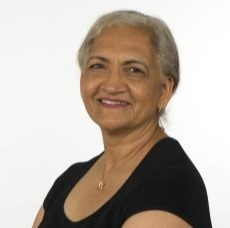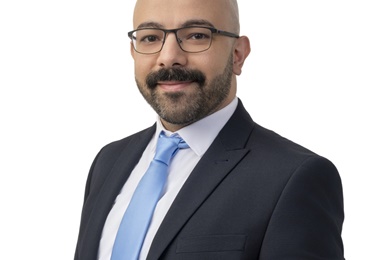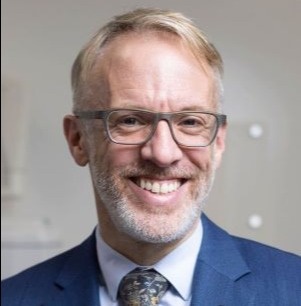The ORE: a flawed system made worse by the pandemic with further challenges ahead
Over recent years, about a third of dentists registering with the GDC have done so on the basis of qualifications from outside the UK, and they now make up nearly a quarter of all dentists on the register. They provide a vital part of the overall dental workforce, ensuring that there is more capacity for dental treatment than UK graduates can provide alone.
We need dentists from other countries who want to practise in the UK to meet the same rigorous standards which we expect of dentists who trained in the UK. It’s in everybody’s interest that applicants from other countries have a process to follow which they can be confident is a fair test of their professional competence and provides them with a clear route to registration.
That’s been a particular issue for dentists from outside Europe for many years because the process they need to follow is set out in inflexible legislation which only the government can change. For a long time, we have been calling for changes to our legislation to give us the flexibility to address these issues. We know the government understands and shares those concerns and we have been working closely with the Department of Health and Social Care to plan the necessary changes, which we believe are in the best interests of patients and regulation of the professions – but progress has been slower than we had hoped .
That’s not an abstract legal issue. The result is that candidates have not been able to plan with confidence, with the pandemic adding further obstacles, and some candidates now unable to complete the process because of the strict legal time limits.
That isn’t helpful or reassuring for people caught up in this and leaves them in a very difficult position. So it’s important to explain as clearly as we can what is causing the current difficulties and what needs to be done to solve them.
Registering to practise as a dentist from overseas
Under the current legislation, dentists with qualifications gained outside the UK who want to practise in the UK must follow one of three routes operated by the GDC. The first is to pass the Overseas Registration Examination (ORE) which has two parts: Part 1 is a written exam, and Part 2 is a series of practical tests.
The second route is open to people who have a European qualification from an EU member state, as the UK government has decided to continue to recognise European qualifications for a transitional period. But the European route is due to close at the end of 2022.
Finally, a very small group of applicants can join the register based on one of a limited set of specific qualifications gained before 2001.
Flaws in the current legislation which underpins the ORE
The ORE is important now but it is due to become the primary international route once the special arrangements for recognising European qualifications come to an end. So it will be even more important that it can operate robustly and at the scale we need it to.
There are two changes to the legislation in particular which we think are necessary for that to happen. The first is the legal requirement for the ORE to be delivered by dental schools. This significantly limits the number of organisations which can run the exam and constrains the number of places that are available each year. Removing that requirement could mean more exam places being available more frequently and in more locations, giving people who need to use this route to register more choice to organise their professional development, career and indeed lives around being able to practise in the UK.
The second is to change the basis on which examination fees are set. At present, candidates pay a fee which was fixed in 2015 and does not cover all the costs of running the ORE. The shortfall is met from GDC’s general funds – which in practice means that the ORE is subsidised from the fees paid by dental professionals already on the register.
The deficit gets larger if more places are offered and larger still if any places remain unfilled. We have no desire to make a profit on operating the ORE – but we don’t think it is fair that it has to be run at a loss and that current registrants have to meet the shortfall.
The pandemic has exposed and created wider issues
These problems are not new but have been highlighted by the pandemic. The consortium which currently provides the exam sittings for Parts 1 and 2 of the ORE has not been able to run the practical elements of the exams since the onset of the Covid pandemic in March 2020. That’s partly because the physical environment needed for the exams was unavailable or unsuitable and partly because social distancing requirements reduced capacity to a level which made each exam sitting difficult.
That has resulted in a long and frustrating period of uncertainty for the candidates wanting to take the ORE but who have been unable to do so for almost two years. It’s been a difficult period for everybody waiting for a place, but even more so for those caught by a rule which says that Part 2 must be passed within five years of first attempting Part 1. The longer the suspension of the exam has continued, the more candidates have reached the five-year limit without an opportunity to take Part 2. There are currently 132 people in that group, split about half and half between candidates who have previously attempted Part 2 and those who have not yet been able to take it at all.
The obvious solution would be to relax the five-year rule to take account of the extraordinary situation caused by the Covid pandemic – but the rule is written into legislation in a way which gives us no discretion at all, so we simply cannot legally do that. Instead, we have been discussing with the DHSC changes to the law which remove the barrier to taking Part 2 where the delay is a result of the pandemic. We are optimistic that that will lead to a solution, but until the necessary legal changes are made, candidates will not be able to sit the Part 2 exam if they have reached the five-year limit.
We’re well aware that it is the candidates waiting for a place who are bearing the brunt of all this. They have had to deal with prolonged uncertainty while they have not been able to move on with their professional careers or to make long term plans. Candidates caught out by the five-year rule are in a more difficult situation still. The sooner the ORE can resume, the sooner we can start to make inroads into the problem, and it’s a big step forward that we have been able to arrange a Part 2 session for January next year. We’ve prioritised the offer of places to those approaching the five-year limit, and we hope to be able to announce further sessions in 2022 soon.
The ORE will be under more pressure from 2023
Those changes are important in their own right, but become even more important as we approach the end of 2022 when the European route to registration is due to close. All EU applicants who want to register as a dentist in the UK will need to come through the ORE. This means that the whole system will come under much greater pressure.
We identified the impact that EU exit would have on the ORE many years ago and have been working with DHSC on the law governing international registration generally. It’s good that the Department’s consultation on reform in Spring of 2021 included a commitment to consult separately upon changes to our routes to international registration. This consultation needs to happen early next year, to allow time for new legislation to be made and changes introduced to prevent extra pressure on the ORE.
Legislation is at the heart of the flaws in the ORE
There’s no doubt that the pandemic exacerbated the problems caused by the legal constraints on the design of the ORE, creating very difficult circumstances for many dentists who simply want to practise in the UK. Without legislative changes, more dentists from overseas will be at risk of being caught up in the same problems from 2023. Above all, we need to move away from an approach where detailed rules are set in legislation and move instead to a system where there is much more scope to amend the rules to reflect changing circumstances and changing needs.
We are doing all we can within the constraints of the current legislation to restart the ORE and create opportunities for people to qualify to work as dentists in the UK. But there are limits on how far we can go towards creating a robust international registration system which maintains our standards and operates at the scale it needs to for as long as those constraints remain.
 eGDC
eGDC

